Why Choose Our GMP/HACCP Chitosan Manufacturer?
Quality and safety hold priority status when it comes to the production of Chitosan, especially as its applications transition from food and supplements to biomedicine and advanced materials. The transformation of crab shells—a byproduct from seafood processing—into high-purity Chitin and Chitosan highlights a union between environmental responsibility and technology. Bio21 recognized this intersection in 2023, taking decisive steps to establish itself as a GMP/HACCP-certified Chitosan manufacturer with a focus on both reliability and innovation.
A supply chain built for quality
The Chitosan manufacturing process can only be as good as the raw material that goes in. For this reason, dependable sourcing is paramount. By working directly with an Indonesian crab meat processor holding GMP, HACCP, and EU certifications, Bio21 ensures access to a steady stream of top-tier crab shells. Snow crab and blue crab shells, byproducts of a robust seafood operation, serve as the foundation for Chitin and Chitosan synthesis.
What sets this approach apart is not merely the quality but the traceability and volume of supply. Constant input of fresh, human-grade food byproducts enables strict selection, consistent quality, and sustained output—key requirements for customers in pharmaceuticals, nutraceuticals, and food applications who demand both purity and security in their supply chain.
Implementing a robust quality management system
Certifications such as GMP (Good Manufacturing Practices), HACCP (Hazard Analysis and Critical Control Points), and ISO standards do more than decorate a brochure; they are a framework that brings every segment of the operation under vigilant control. The entire chain—from incoming crab shells and extraction of Chitin, to deacetylation for Chitosan and onward to drying, grinding, and packaging—follows stringent protocols.
These cascading quality systems are not optional. They ensure that bacterial contamination is minimized, cross-contamination is prevented, and traceability extends from finished product back to individual batches of raw material. Regular audits, validation studies, and ongoing staff training fold these standards into everyday habits.
Let’s bring this into context with a simplified look at core systems in play:
| Quality Parameter | System/Certification | Function |
| Raw material safety | HACCP | Identifies and |
| Batch and operations control | GMP | Ensures consistency |
| Continual improvement | ISO series | Drives ongoing process |
| Traceability | QMS and | Tracks product from |
Embracing technological innovation
Chitosan’s properties depend heavily on the final particle size and rheological properties. Bio21 invested in dedicated cleanrooms for its grinding machines, focusing on precise production of high-viscosity Chitosan powder. The powder’s mesh size can be controlled between 50 and 150 mesh, addressing wide-ranging needs from food coatings to biomedical applications.
Cleanroom enviroment class 100K: Grinding room
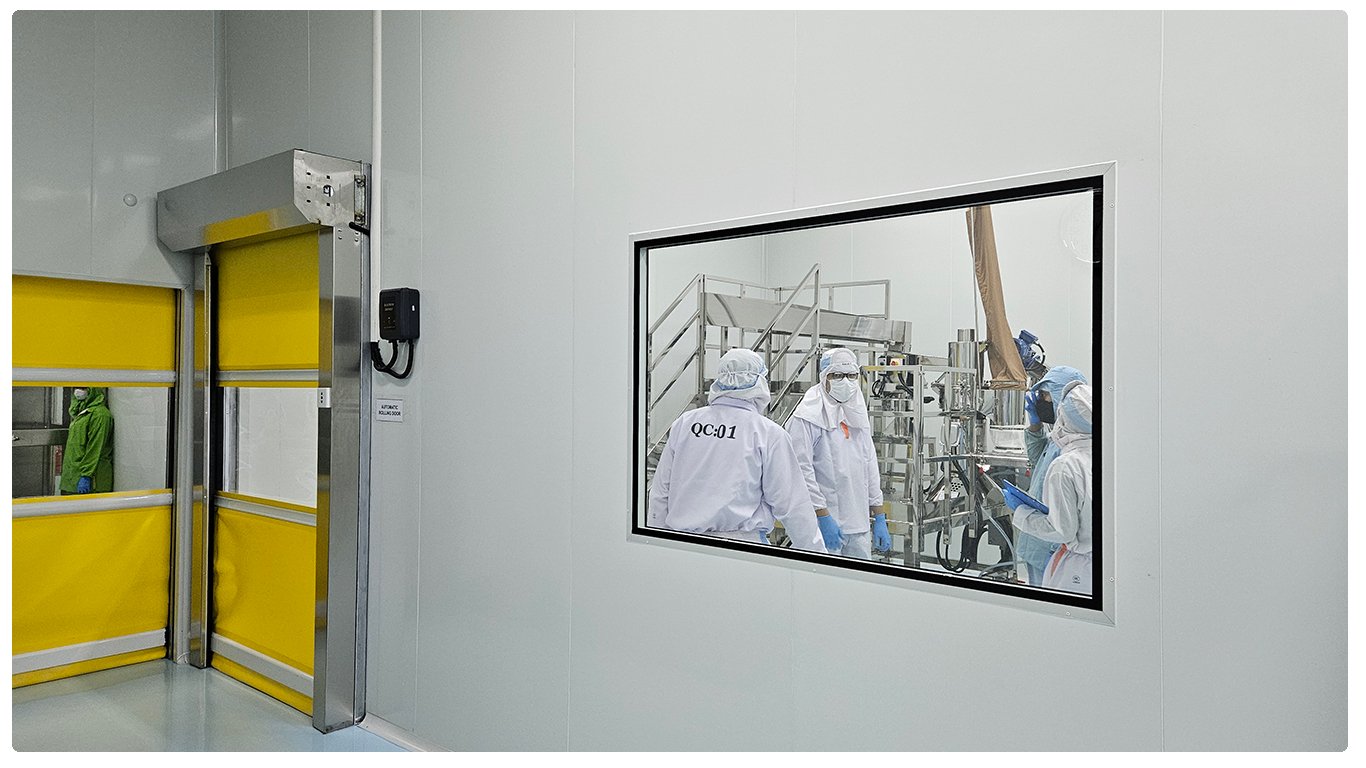
A cleanroom environment is vital at this stage. By isolating the grinding process from environmental contaminants, Bio21 further secures product purity, controlling for both microbiological risks and physical contaminants.
Beyond particle size, control over viscosity and molecular weight brings adaptability for diverse applications. From low-viscosity, water-soluble Chitosan for dietary supplements to ultra-high-viscosity variants exceeding 4,000 cPs and molecular weights past 2,000 kDa, this flexibility is often a distinguishing point for discerning customers. Adjusting production parameters to exact requirements ensures consistency and broadens the spectrum of Chitosan’s utility.
Raw material purity: more than just a sourcing claim
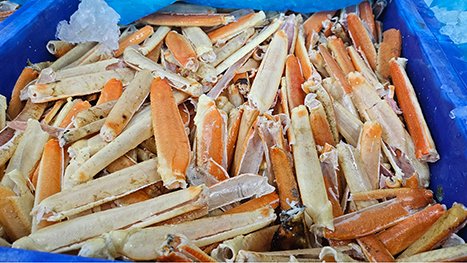
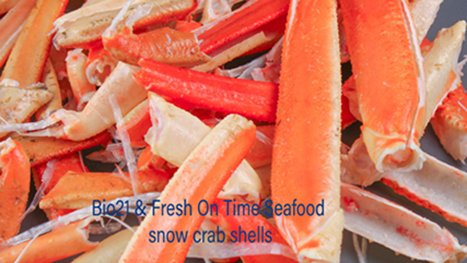
Crab shells destined for Chitosan manufacturing at Bio21 are not anonymous ingredients; each batch carries a traceable history. The advantage is twofold:
- Freshness ensures higher Chitin yield and purity
- Traceability addresses regulatory requirements and builds customer trust
Because these shells come directly from human food production, standards set for edible products naturally filter into the Chitosan production chain. This reduces the risk of contamination and assures that the same high bar applied to seafood products is maintained in downstream biopolymer production.
Legacy of expertise meets forward-thinking practice
Fresh On Time Seafood, commissioned by Bintarna Tardy in 2004, provides deep roots for Bio21’s manufacturing endeavors. This is not a new startup seeking to find its place. The business stands on decades of learning—tracing back to the first seafood cannery launched in 1984. Over the years, a reputation for reliability and quality was forged, extending to an international customer base and now seamlessly dovetailing into the Chitosan market.
This heritage matters. Years of handling, refining, and optimizing seafood processing techniques inform the present-day focus on Chitin and Chitosan. The broad spectrum of crab meats—from Alaska King Crab to blue swimming crab—means a continuous, diverse stream of raw materials, further solidifying the ability to supply high-quality Chitosan in both bulk quantity and consistent quality.
Distinct grades for a range of industries
Chitosan’s uses have expanded rapidly. Bio21 has responded by producing distinct product grades that cater to food, pharmaceutical, and even medical-device applications. Each grade is not simply a marketing term, but an adherence to rigorous, tailored processes and compliance:
|
Control at every step: Viscosity and molecular weight
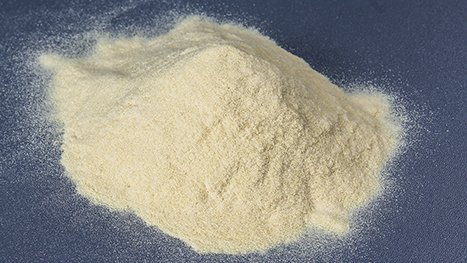
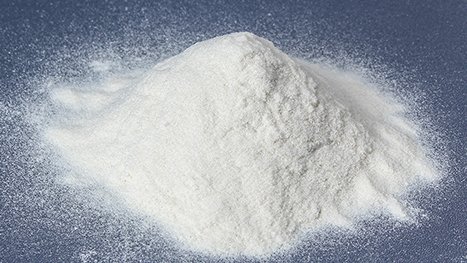
The physical and chemical properties of Chitosan — especially viscosity (measured as cPs in solution) and molecular weight — influence its gel-forming, binding, and moisturizing abilities. Customers from research and industrial backgrounds appreciate the meticulous control offered by Bio21:
- High-viscosity Chitosan, up to 4,000 cPs at 1.0% solution
- Molecular weight control from ultra-high (over 2,000 kDa) to low-MW fragments
- Mesh size adaptation for specialized uses
Strict control during manufacturing means the product profile can be adapted for requirements as different as slow-release pharmaceuticals or clear beverage clarifiers. And because these controls are maintained within the certified cleanroom environment, customers benefit from batch-to-batch reliability.
Traceability as a standard, not a feature
When buyers look to source Chitosan, traceability is increasingly non-negotiable, especially as US, EU, and Asian regulations around food ingredients and biopolymers sharpen. By linking every batch of Chitosan back to its raw shell origins, Bio21 opens its records for customer scrutiny. This transparency not only reassures customers about safety and compliance, it supports recalls, audits, and regulatory approvals whenever they arise.
Key characteristics of traceable Chitosan:
|
Environmental and operational strength
Bio21’s process leverages what could otherwise be discarded: crab shells left after meat extraction. By using these shells, the operation contributes to zero-waste objectives while extracting maximum value from the seafood chain. This synergy creates economic and environmental benefits.
Some powerful benefits to this approach include:
|
Chitosan’s remarkable functionality, from water purification to wound dressing, owes its usefulness to the details maintained in sourcing and manufacturing. Bio21’s unique approach, rooted in certified processes and born out of a tradition of excellence in the seafood industry, positions it at the forefront of Chitosan manufacturing.
Clients in fields ranging from food technology to pharmaceuticals demand assurance — both in product quality and in the ethics of its production. When a facility weds the muscle of quality control systems with a pipeline of fresh, traceable raw materials, the output naturally stands apart. This strength, alongside meaningful industry expertise, signals a new standard for Chitosan production.

